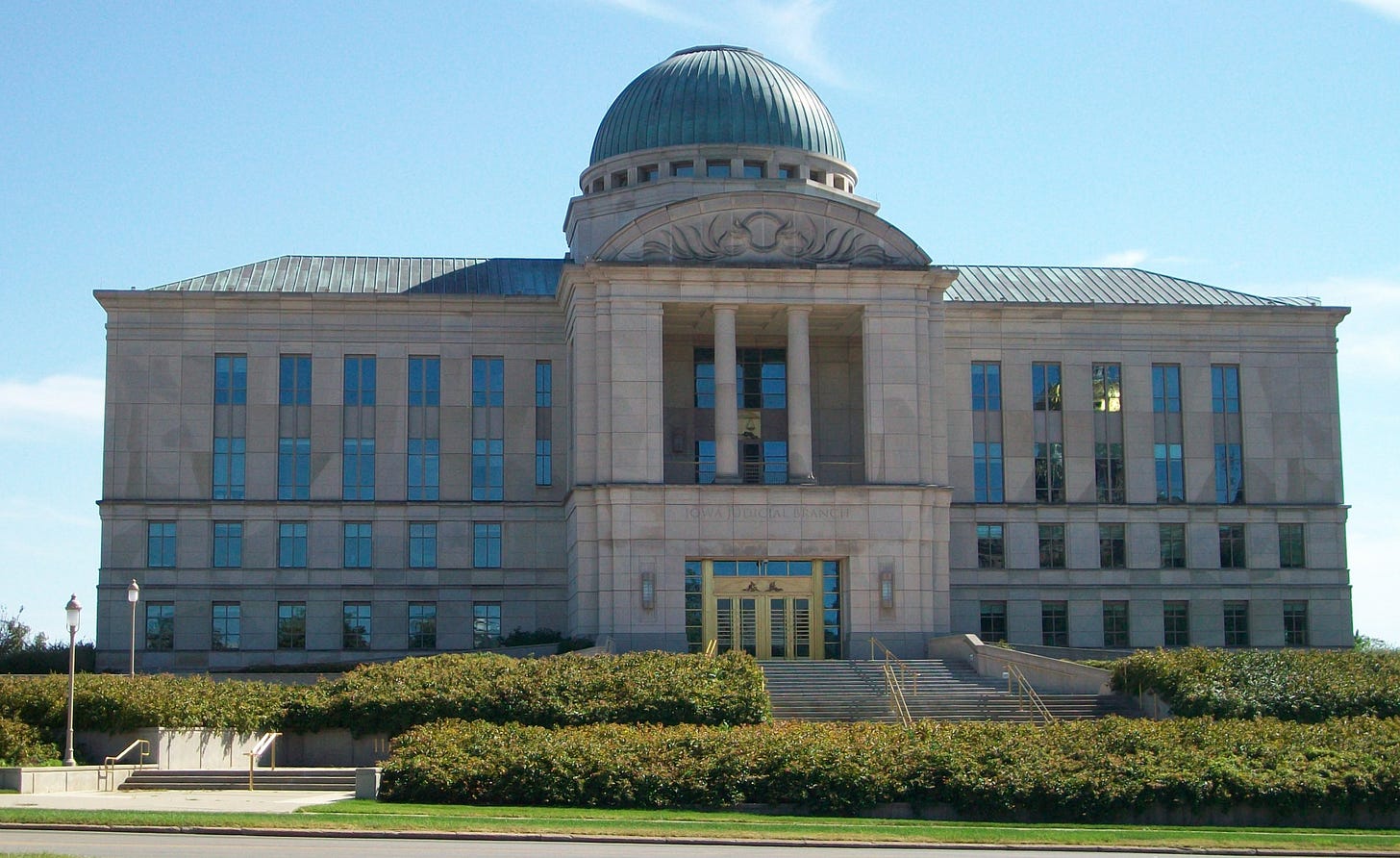Hold appellate judges and Supreme Court justices accountable by voting
State Republicans politicized the judicial selection process. The only way to hold our appellate judges and Supreme Court justices accountable now is through retention elections.

Americans’ ballots this November will present us with several choices: President, Congress, state legislature, local races. In Iowa, we have another decision to make: should we retain our judges?
Many voters are unsure what to do with this part of the ballot. The Iowa State Bar Association conducts a survey allowing Iowa lawyers to anonymously rate judges they are familiar with. This year’s ratings are not yet out, but in general, it's rare for attorneys to say a district judge should not be retained, even anonymously. Any rating under 85-90% should have you looking at that judge's record before voting.
But in the case of appellate judges and the Iowa Supreme Court, you may want to take a closer look regardless of rating.
Iowa once had a nonpartisan judicial merit system for selecting judicial nominees at all levels. But in 2019, state Republicans politicized the selection process for appellate judges and Supreme Court justices, giving the governor a thumb on the scale of judicial nominations.
Iowa’s old nominating process gave its courts legitimacy, and pre-politicization Supreme Court rulings demonstrated judicial independence. For example, the 2009 ruling recognizing the right to same-sex marriage was unanimous. Later, two Republican-appointed justices joined three Democrat-appointed ones to rule in 2018 that Iowa’s constitution protected abortion as a fundamental right. In both cases, the composition of the court and manner of its rulings declared that the law was the law regardless of who was interpreting it.
Now that Iowa Republicans have remade the Supreme Court in the governor’s image, it’s harder to accept that idea. Iowa’s current Supreme Court justices were all appointed by Republicans, but the differences between pre- and post-politicization appointees are clear in its recent rulings. In 2022, the Court changed its mind about women’s fundamental rights and declared that Iowa’s Constitution did not protect abortion more strongly than the pre-Dobbs U.S Constitution. That ruling was a 5-2 split that paired three newly-appointed justices with the two who dissented in the 2018 decision. And this June, the Court found that Iowa’s Constitution offered no protections for abortion whatsoever in a 4-3 decision split between pre- and post-politicization appointees.
It’s obvious that what changed between 2018 and 2024 was not the Iowa Constitution, but the justices. Changing the nominating process for justices created a risk that nominees would be chosen for political reasons instead of for their judicial abilities, dedication to the rule of law, or judicial independence. By not only reversing but repudiating its own ruling of only six years prior, the Court has confirmed the worst fears of those who opposed the changes to the selection system.
In other words, the new justices may be allowing their political feelings to interfere with their interpretation of the law.
This isn’t merely bad for Iowans’ respect for the institution of our courts and for the rule of law. The problem with biased decisions is that they are, well, biased. Motivated reasoning might get the result that one party supports, but it’s also logically flawed, doesn’t interact well with the real world, and is generally difficult to apply.
And so we have incoherence on women’s rights. They were “[i]mplicit in the concept of ordered liberty” in 2018. Now, despite a 1998 amendment to the Iowa Constitution stating that all men and women are free and equal, Iowa women have only the rights that they had when the state first adopted its Constitution. Likewise, prosecutors are trying to figure out how to prosecute child abusers after a recent decision abruptly upended a long-standing law that addressed the reality that child victims may be too traumatized to testify in view of their abusers.
We don’t presume to tell you how to vote in this year’s judicial retention elections. But we do urge you to hold appellate judges and Supreme Court justices to the high standards we have historically demanded of our courts through the only means available, the ballot.
Kelcey Patrick-Ferree and Shannon Patrick live in Iowa.
Originally published in the Iowa City Press-Citizen online on September 13, 2024, and in the newspaper on September 21, 2024.

